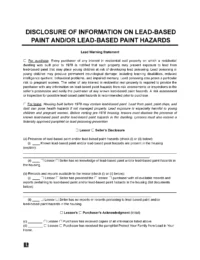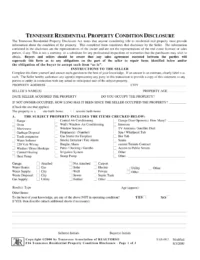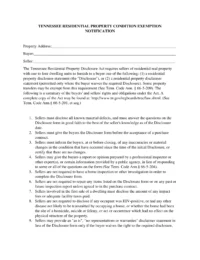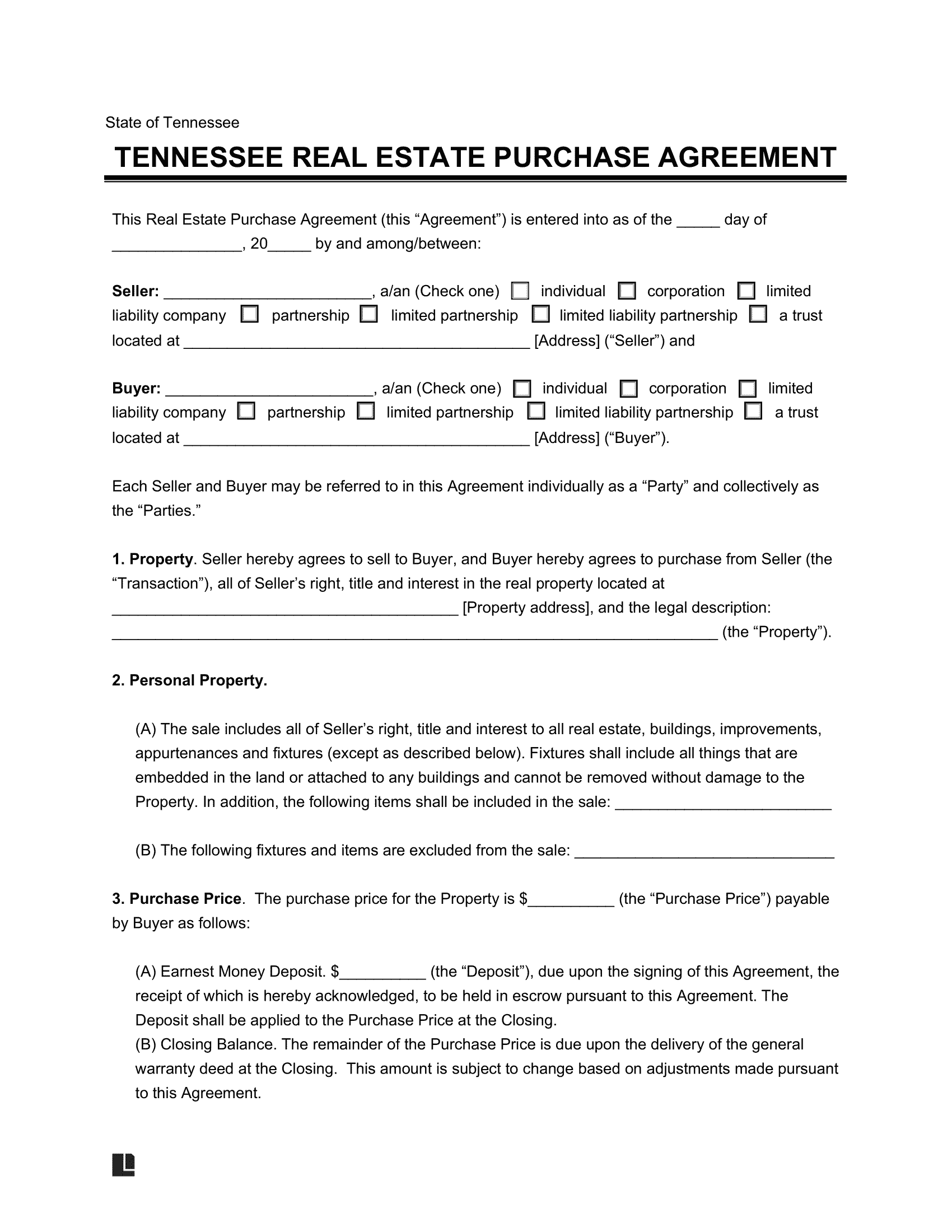A Tennessee residential purchase agreement helps a prospective buyer and a seller establish the terms and conditions of a property transaction. It outlines the buyer’s initial offer to purchase the property, including crucial details such as the proposed purchase price and specific conditions or contingencies the buyer wishes to include.
Once the seller receives an offer, they have a designated period to consider it. They may choose to accept it or propose modifications through a counteroffer. Negotiations proceed until both parties agree on all terms, at which point they formalize their agreement by signing. This document signifies their commitment to transferring ownership of the property under agreed-upon conditions.
State Laws
- Buyer Beware: Potential buyers must receive a property condition report clearly explaining any defects the property has. If the buyer wants, they can waive their right to this report, purchasing the property “as is” with no representations or warranties from the seller [1] .
- Delivery of Written Disclosure: The seller must deliver a written disclosure or disclaimer statement of the property’s condition. They may include it in the real estate purchase contract, as an addendum to the contract, or in a separate document [2] .
- Liability for Omissions or Errors (Experts’ Reports): The owner won’t be liable for any error or omission of any information delivered under the disclosure if they didn’t have actual knowledge of the error or omission or if their knowledge was based upon information from public agencies [3] . Furthermore, the owner won’t be liable if they weren’t grossly negligent in obtaining the information from a third party and transmitting it.
- Liability for Changes in Circumstances: If the property condition information an owner discloses in a disclosure statement changes after the disclosure’s delivery, the inaccuracy doesn’t violate state law [4] .
- Liability for Nondisclosure Criminal Acts on Property or Communicable Diseases: A property owner or real estate license won’t be liable for failing to disclose a communicable disease that’s highly unlikely to be transmitted through a dwelling place or a criminal act on a property [5] .
Realtor Version
Required Seller Disclosures
Lead-Based Paint Disclosure
42 U.S. Code § 4852d demands sellers to provide buyers of residential properties with a disclosure that any property built before 1978 may contain lead-based paint.
Residential Property Disclosure Statement
This statement explains the property's material condition to the buyer. The seller must provide it if the buyer signs a waiver surrendering their right.
Do Sellers in Tennessee Have to Disclose Property Defects?
Sellers in Tennessee must disclose property defects if the buyer does not sign a waiver. If they sign a waiver, the seller doesn’t have to make any warranties or guarantees pertaining to the property’s condition. If the buyer signs the waiver, the seller won’t be responsible for any defects on the property.




